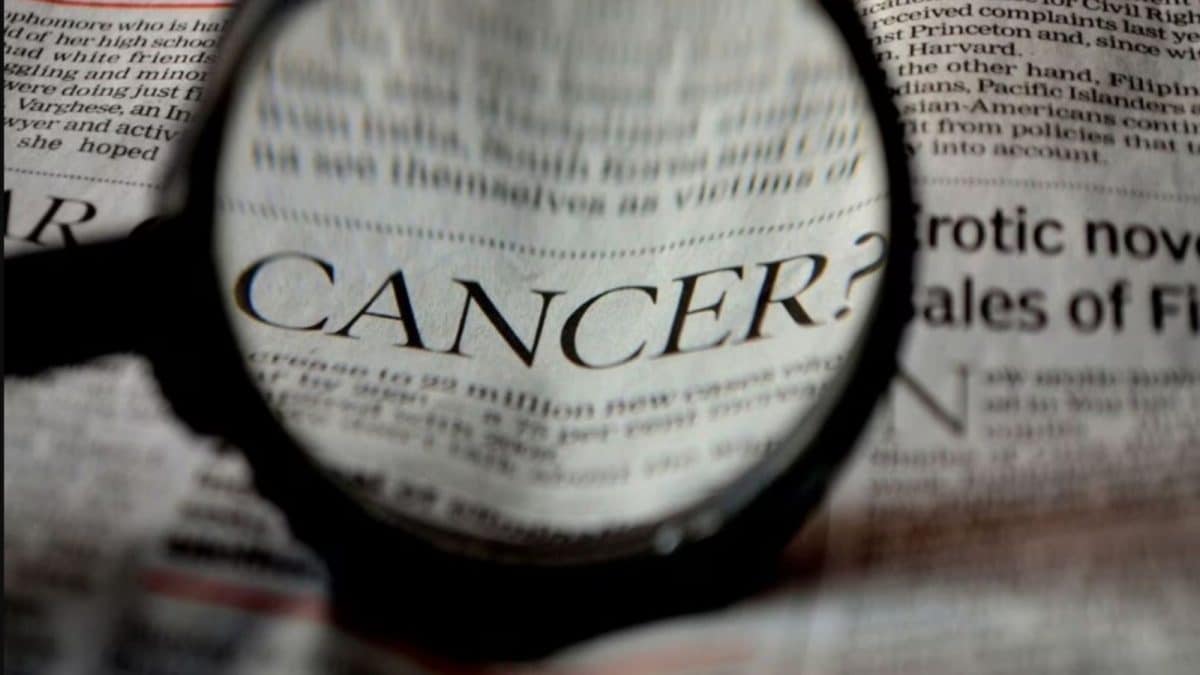Last Updated:
Cancer is a growing threat in India, but early detection and timely intervention are our strongest weapons

Detecting cancer at an early stage often means the difference between a curable disease and one that has progressed to a life-threatening condition.
Cancer is no longer a rare disease in India. According to recent reports, approximately one in every eleven Indians is at risk of developing cancer in their lifetime. This rising prevalence makes awareness of early warning signs more critical than ever. Detecting cancer at an early stage often means the difference between a curable disease and one that has progressed to a life-threatening condition.
Recognizing the red flags of the most common cancers can empower individuals to seek timely medical advice, improving outcomes significantly. Below, Dr. Ankur Bahl, Principal Director Medical Oncology, Fortis Gurgaon outlines key symptoms and warning signs for some of the cancers most frequently seen in India.
Recommended Stories
Breast Cancer
Breast cancer is one of the most common cancers among Indian women. Early detection is vital for successful treatment. Key signs to watch for include:
• A lump or thickening in the breast or underarm that does not disappear over time.
• Changes in the size, shape, or contour of the breast.
• Nipple discharge, particularly if it is blood-stained.
• Skin changes over the breast such as dimpling, redness, or an “orange peel” texture.
Women should regularly perform breast self-examinations and consult healthcare providers if any abnormalities persist. Mammography and clinical exams are crucial for early diagnosis.
Cervical Cancer
Cervical cancer remains a significant health challenge in India, largely due to lack of screening and awareness. Early symptoms include:
• Abnormal vaginal bleeding, such as bleeding between periods, after sexual intercourse, or post-menopause.
• Unusual vaginal discharge that may be foul-smelling or blood-tinged.
• Pelvic pain or pain during intercourse.
Regular Pap smear tests and HPV vaccination are effective preventive measures. Early detection through screening can reduce mortality drastically.
Lung Cancer
Lung cancer, often linked to smoking and air pollution, is increasingly common in India. Watch for these symptoms:
• A persistent cough lasting more than three weeks.
• Coughing up blood or blood-tinged sputum.
• Shortness of breath or chest pain that worsens with deep breaths.
• Unexplained weight loss or loss of appetite.
High-risk individuals, especially smokers and those exposed to pollutants, should consider low-dose CT scans as a screening tool.
Oral Cancer
Oral cancer is particularly prevalent in India due to widespread tobacco use in smoking and chewing forms. Key signs include:
• A non-healing ulcer or sore in the mouth lasting longer than two weeks.
• White or red patches inside the mouth.
• Difficulty swallowing or persistent hoarseness of voice.
• A lump in the neck indicating possible spread to lymph nodes.
Early diagnosis dramatically improves prognosis. Regular dental check-ups and avoiding tobacco can reduce risk.
Colorectal Cancer
Colorectal cancer is often detected late because its symptoms can be mistaken for benign conditions. Red flags to note:
• Persistent changes in bowel habits, including constipation or diarrhea lasting several weeks.
• Blood in stools or black, tarry stools indicating bleeding.
• Abdominal pain that persists without clear cause.
• Unexplained weight loss.
Colonoscopy and stool tests can aid early diagnosis, especially in individuals over 50 or with family history.
Prostate Cancer
Prostate cancer is common among older men and often progresses silently. Warning signs include:
• Difficulty in urination, weak urinary stream, or frequent urination at night.
• Blood in urine or semen.
• Persistent pain in the back, hips, or pelvic area.
Regular screening with PSA blood tests and digital rectal exams is recommended for men above 50 or those at higher risk.
Why Early Detection Matters
Not every symptom listed here means cancer, but persistent and unexplained changes in the body should never be ignored. Early consultation with a healthcare professional can lead to timely diagnosis and treatment, significantly improving survival rates.
Tools like breast self-examinations, Pap smears, HPV vaccinations, low-dose CT scans for smokers, and routine medical check-ups are invaluable in the fight against cancer. Despite these advances, late diagnosis remains a major challenge in India due to lack of awareness and limited access to healthcare.
Cancer is a growing threat in India, but early detection and timely intervention are our strongest weapons. Awareness and vigilance can save lives turning the tide against this disease and offering hope to millions.
About the Author

Swati Chaturvedi, a seasoned media and journalism aficionado with over 10 years of expertise, is not just a storyteller; she’s a weaver of wit and wisdom in the digital landscape. As a key figure in News18 Engl…Read More
Swati Chaturvedi, a seasoned media and journalism aficionado with over 10 years of expertise, is not just a storyteller; she’s a weaver of wit and wisdom in the digital landscape. As a key figure in News18 Engl… Read More
September 07, 2025, 12:33 IST
Loading comments…
Go to Source
Author: News18




